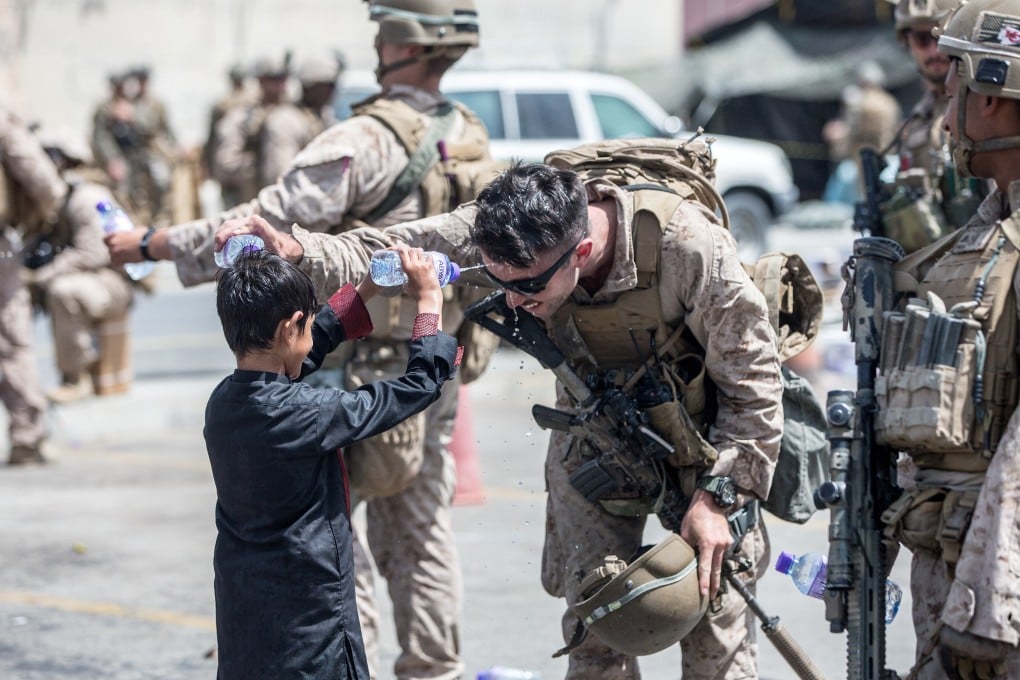Advertisement
South Korea wary of US plan to use military bases to process Afghan evacuees as withdrawal ignites debate
- After US withdrawal from Afghanistan allowed Taliban to seize control, Washington is considering using bases in South Korea and Japan to temporarily house evacuees
- Chaos in Afghanistan has also prompted calls in South Korea for reassessment of security relationship with the US and for Seoul to regain operational control of its troops
Reading Time:4 minutes
Why you can trust SCMP
12

The US plan to use overseas military bases to accommodate evacuees from Afghanistan has divided opinion among South Korean politicians and prompted discussion about the strength and scale of the security ties between the two countries.
South Korea hosts 28,500 US troops but Washington’s withdrawal from Afghanistan has led to calls for Seoul to regain operational control over its troops. The debate coincides with the visit of Washington’s special envoy for North Korea, who arrived in Seoul on Saturday.
Advertisement
The Taliban seized power in Afghanistan last week as the US ended its 20-year presence in the war-torn country. However, US President Joe Biden on Sunday said the US maintains an unwavering commitment to helping at-risk Afghans after Taliban fighters beat back thousands desperate to flee via Kabul airport.
Two US bases in southern Spain have been confirmed as sites to receive Afghans who worked with the US military, the Spanish government said on Sunday.
Advertisement
The evacuees would be screened and vetted at the military bases before being allowed to move to the US, The Wall Street Journal reported on the weekend. The US is considering using bases in South Korea and Japan as other sites to process evacuees, along with bases in Germany, Kosovo, Bahrain and Italy, the Journal reported.
Advertisement
Select Voice
Select Speed
1.00x